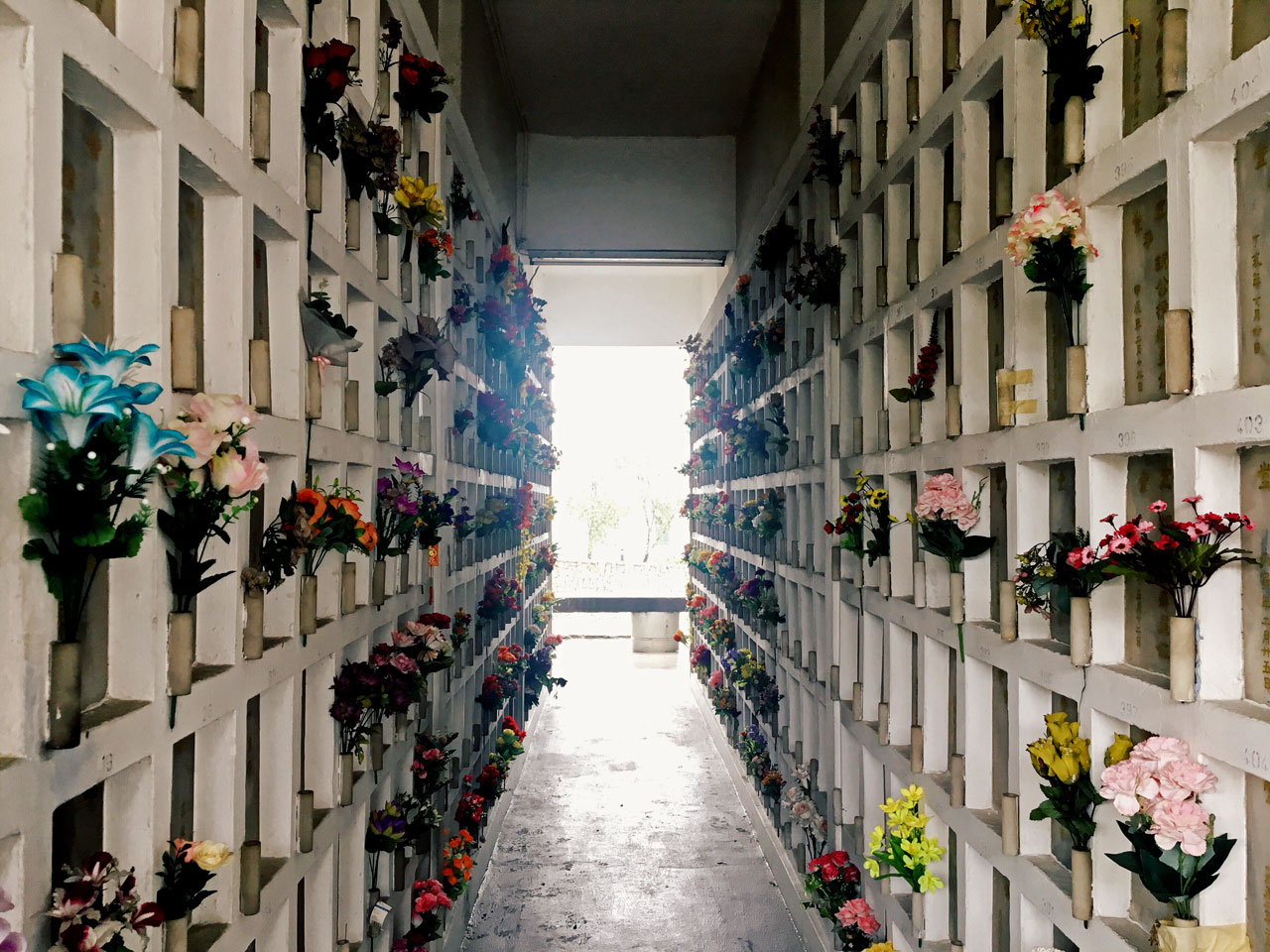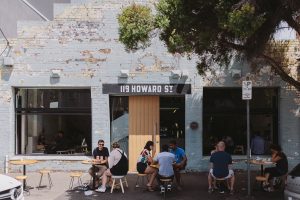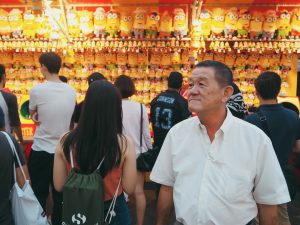On the day I decide a trip to a columbarium counts as recreational activity, it rains. Of course it does. In the same way we’re sure it will always rain on a Good Friday afternoon, it rains when I step off the bus to visit what, for many, will become their final resting place. But I’m not here to mourn anyone viagra expresslieferung. I’m here to stretch my legs.
Death, for me, has always been something that happens to strangers. Growing up, I’ve never had to experience the passing on of any relatives. And this has turned death into this distant, abstract thing I’ve never really connected with. It’s made it easy for me to say, when I hear of someone passing, that that’s just life. One way or another, it happens to all of us eventually.
Which made me believe that I’d be more comfortable in a place like this. As the massive downpour fizzled into a light drizzle, something about being around shelves upon shelves of urns, incense, and flowers—irrefutable proof of lives lived and concluded—unnerved me.
I thought back to a story I once heard about some unlucky sod who had a body land in front of him as he walked home one afternoon. Still in shock, he entered the lift to get to his flat and encountered the “ghost” of the person who had committed suicide.
At the same time, the prospect of supernatural experience in a columbarium struck me as somewhat cliché. It’d be like seeing a ghost in a haunted house, I thought—“Of course there’s a ghost! It’s a haunted house!”
Yet what I found distracting was not the columbarium niches that were occupied but the ones that weren’t. Empty, they looked completely lifeless in the way that empty homes do.
I’ve heard of how it’s become normal for people to go shopping for columbarium real estate. Walking past the occupied niches, I began to see how, much like we do in life, we might want, in death, to be surrounded by the right people. It’s a strangely human pre-occupation, one that won’t matter the least when we die. But there they were, countless families clustered around the same spots.
It would honestly be quite funny though, if my ashes were to be housed next to someone I’d spent most of my life fighting or trying to hurt. I can imagine it as a final prank, performed with great joy by my future wife or children. Or perhaps they might misspell my name on purpose, or use a not-so-solemn picture of me in mid-sneeze. A grammatical error in the memorial inscription would be quite fitting as well.
Some have called me lucky for never having to experience the death of anyone in my life. And perhaps this explains why a place like this can go from spooky to relaxing in under an hour.
As an adult, it becomes harder and harder to understand and truly feel the loss of someone. As a child, it just hurts that someone you used to be around everyday is suddenly no longer there. You scream and cry and nothing makes sense. But with age, I’ve held on to my emotions but gained perspective, new emotional defences, and other distractions. I’ve had all the time in the world to tell myself: Death happens, it’s normal.
And so I really wonder, what will it be like to lose someone close? What’s going to hurt more, the funeral or the days that follow, when I’m getting their affairs in order?
The truth is, we’re all going to die. Knowing this doesn’t change anything for many of us. It doesn’t make us want to help animals, volunteer at NGOs, or be nicer to waiting staff. Instead, it makes us anxious about our jobs; about whether we will ever meet the subjective living standard we’ve set for ourselves. This is just what it means to be human.
But for those of us who cannot afford a trip to Tibet or some meditation boot camp in Bali, Mandai Crematorium does just as well as a place to re-assess your perspectives. In many ways, it feels just like a park. There are trees here that you don’t see anywhere else, and there are a surprising number of big, open spaces. From time to time, the sound of cannon fire drifts over from an army camp nearby.
If you’re not here to visit someone, you can always be here to glimpse your future self. After all, knowing how we want to die says a lot about how we want to live.





